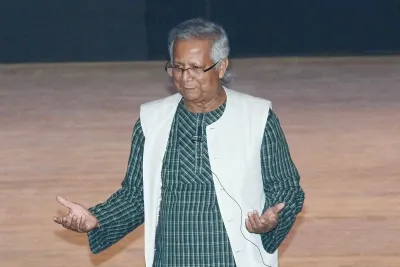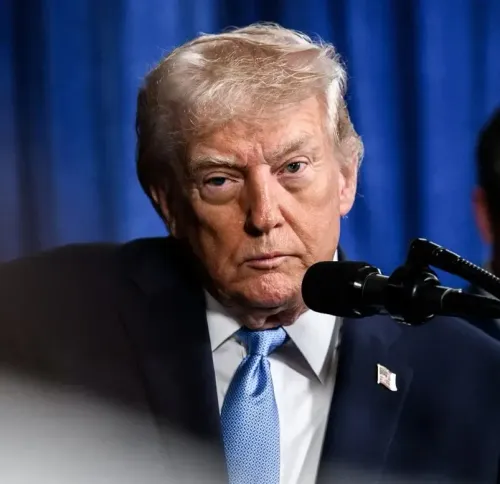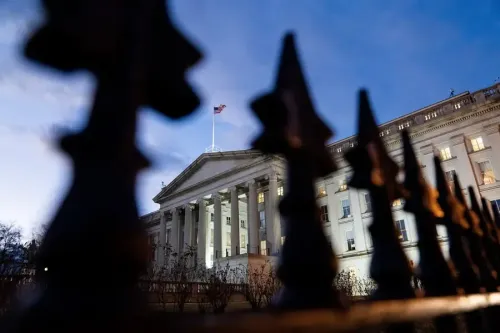Is the Yunus-led interim government in Bangladesh considering a ban on Awami League?

Synopsis
Key Takeaways
- The interim government is contemplating a ban on the Awami League.
- Allegations of dictatorship and terrorist activities have been made against the Awami League.
- Chhatra League has been labeled as a terrorist organization.
- Former President Abdul Hamid has left the country amid ongoing legal issues.
- Political analysts view these developments as a vendetta against the Awami League.
Dhaka, May 9 (NationPress) The interim government of Bangladesh, led by Muhammad Yunus, announced on Friday that it is actively contemplating the requests made by various political entities, organizations, and citizens to prohibit the Awami League party, which is under the leadership of former Prime Minister Sheikh Hasina.
Sources indicate that multiple student groups, radical Islamist factions, and the newly established National Citizen Party, which protested violently across Bangladesh in July and August 2024—resulting in the ousting of Hasina's government—are now vocally advocating for the prohibition of the Awami League.
In a statement, the interim government highlighted that demands have arisen over accusations of “dictatorship and terrorist actions” during the tenure of the Awami League.
“The government has already initiated conversations with political factions regarding this and will arrive at a conclusion soon after consultations. In this context, the government is also considering the UN report concerning the alleged terrorist activities associated with the leaders and supporters of the Awami League,” the interim government remarked.
Additionally, the interim government labeled the Chhatra League, the student branch of the Awami League, as a “terrorist organization”. This organization was banned right after the removal of former Prime Minister Hasina following the upheaval.
“Furthermore, steps are being taken to amend the International Criminal Tribunal Act to hold accountable those organizations implicated in crimes against humanity,” the statement further elaborated.
Meanwhile, former President of Bangladesh Abdul Hamid departed the country on Thursday, months after Hasina's removal. Following the fall of the Awami League government, a case was filed against Hamid, alongside Sheikh Hasina and her family, concerning an attack and shooting during a demonstration in Kishoreganj amid the nationwide student protests.
“We were aware of the case filed in Kishoreganj against him. However, there was no travel restriction imposed by the court or the Anti-Corruption Commission (ACC) concerning his exit. Therefore, there were no legal impediments to his international travel. Moreover, he is currently experiencing health issues,” stated an immigration official when questioned about Hamid's departure despite the ongoing charges.
Experts interpret these recent developments as a continuation of the political vendetta executed by the interim government, under Yunus, against the former Prime Minister and her allies, aiming to exclude the Awami League from participating in upcoming national elections.
The abrupt removal of Hasina last August was viewed internationally as a significant setback for democracy in the nation. The interim government has also faced considerable backlash for accommodating radical and extremist Islamic groups.










